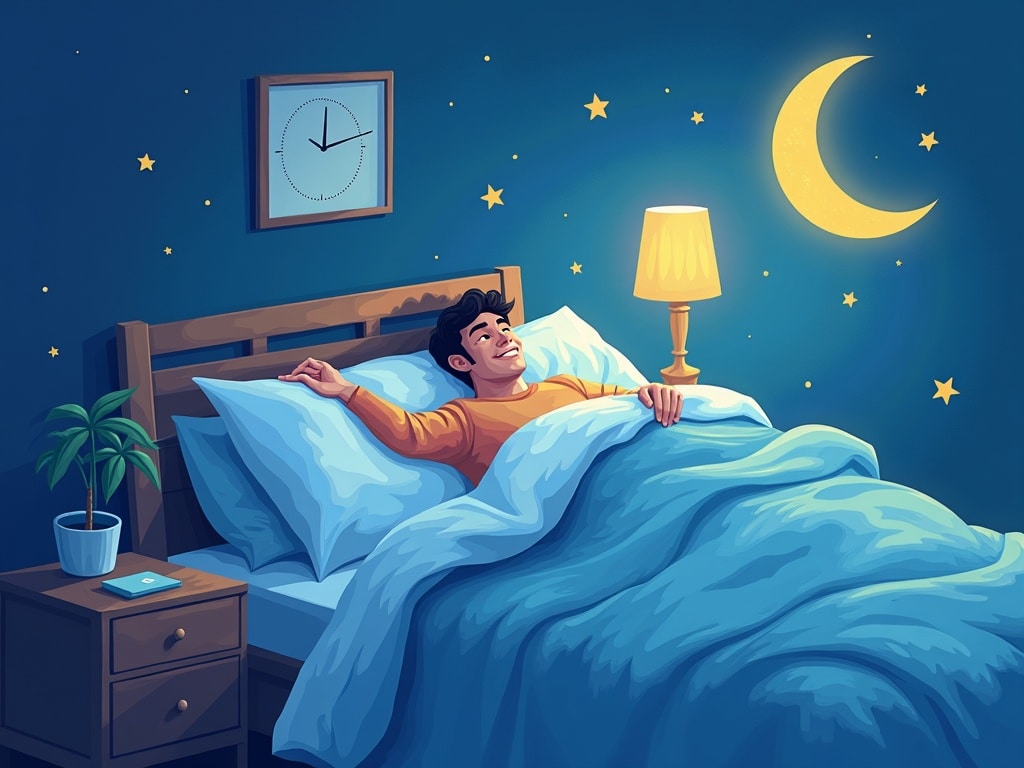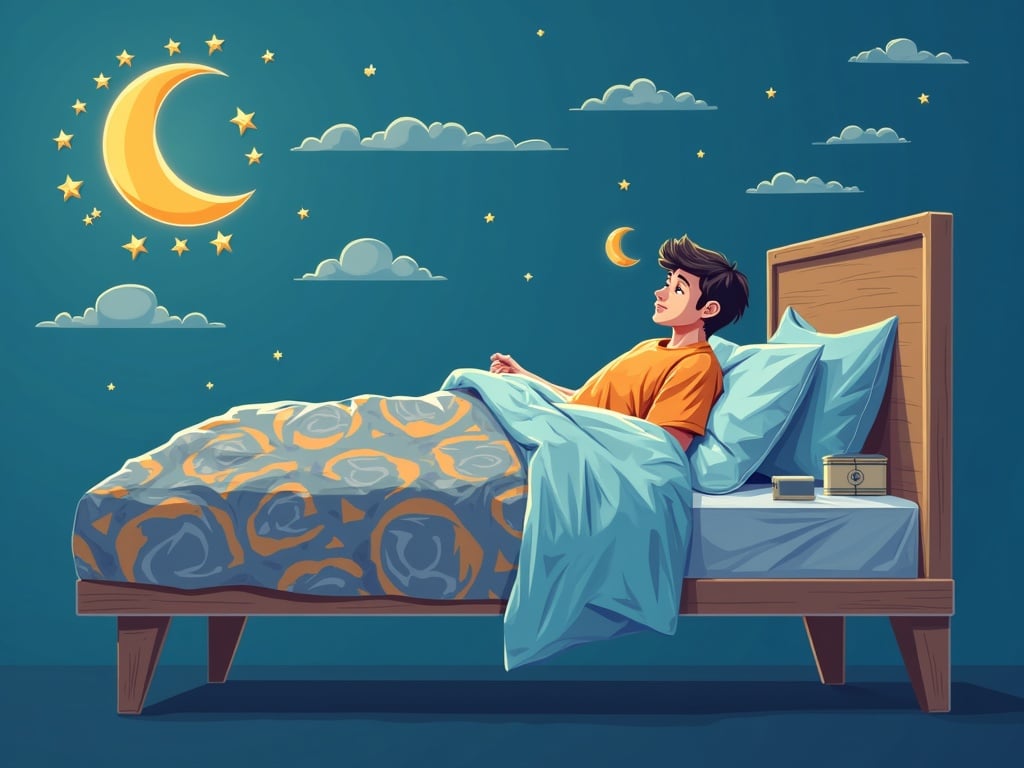How to Sleep Better for Men Over 50: Reclaiming Your Rest
Remember the days when you could fall asleep the moment your head hit the pillow? As men journey into their 50s and beyond, that effortless slumber can become a frustrating memory. The reasons are complex – hormonal shifts, increased stress, and evolving health conditions all play a role. But the good news is that better sleep *isachievable. It requires understanding the changes your body is undergoing and implementing targeted strategies to reclaim your restful nights.
Understanding Sleep Changes After 50
The sleep landscape shifts as we age. These changes aren't necessarily signs of a problem, but rather a natural evolution. Recognizing these shifts is the first step toward addressing any sleep disturbances.
Reduced Sleep Duration and Efficiency
Many men find they need less sleep as they get older, or that their sleep is more fragmented. You might wake up more frequently during the night or find it harder to fall back asleep. The deep, restorative sleep stages become shorter and lighter, leaving you feeling less refreshed in the morning.
Hormonal Fluctuations
Testosterone levels naturally decline with age, and this can impact sleep. Lower testosterone can contribute to sleep apnea, restless legs syndrome, and increased nighttime urination (nocturia), all of which disrupt sleep.
Increased Prevalence of Health Conditions
Health conditions like arthritis, heart disease, prostate issues, and diabetes become more common with age, and each can impact sleep quality. The discomfort from arthritis, for example, can make it difficult to find a comfortable sleeping position. Medications used to manage these conditions can also interfere with sleep patterns.
Lifestyle Factors
Stress levels often remain high in midlife, juggling career, family, and financial responsibilities. Reduced physical activity, changes in diet, and increased alcohol or caffeine consumption habits can also contribute to poor sleep. The kids may have finally flown the nest but you're still tossing and turning all night!
Optimizing Your Sleep Environment
Your bedroom should be a sanctuary, a place dedicated to relaxation and sleep. Creating the right environment is crucial for signaling to your body that it's time to rest.
The Ideal Sleep Temperature
A slightly cooler room temperature, typically between 65 and 68 degrees Fahrenheit (18-20 degrees Celsius), is ideal for sleep. As you fall asleep, your body temperature naturally decreases, and a cool room facilitates this process.
Darkness is Key
Melatonin, the sleep hormone, is produced in response to darkness. Invest in blackout curtains or blinds to eliminate any external light sources. Even small amounts of light can disrupt your sleep cycle. Consider using a sleep mask if complete darkness is difficult to achieve.
Minimize Noise
Excessive noise can interfere with sleep. Use earplugs, a white noise machine, or a fan to mask distracting sounds. If noise from outside is a constant issue, consider soundproofing your bedroom.
Invest in a Comfortable Mattress and Pillows
An old or uncomfortable mattress can lead to aches and pains that disrupt sleep. Choose a mattress that provides adequate support and conforms to your body's contours. The type of pillow also matters; consider your sleeping position (side, back, or stomach) when selecting a pillow that supports your neck and spine.
Establishing a Relaxing Bedtime Routine
A consistent bedtime routine helps signal to your body that it's time to wind down and prepare for sleep. This routine should be calming and enjoyable, avoiding any stimulating activities.
Consistent Sleep Schedule
Go to bed and wake up at the same time every day, even on weekends, to regulate your body's natural sleep-wake cycle (circadian rhythm). Consistency is key to training your body to fall asleep and wake up at predictable times.
Limit Screen Time Before Bed
The blue light emitted from electronic devices (smartphones, tablets, computers) can suppress melatonin production and interfere with sleep. Avoid using these devices for at least an hour before bed. If you must use them, consider using blue light filters or apps.
Relaxing Activities
Engage in relaxing activities before bed, such as reading a book (a physical book, not an e-reader!), taking a warm bath, listening to calming music, or practicing gentle stretching or yoga. Meditation and deep breathing exercises can also help quiet your mind and reduce stress.
Avoid Caffeine and Alcohol Before Bed
Caffeine is a stimulant that can interfere with sleep, so avoid caffeinated beverages in the afternoon and evening. While alcohol may initially make you feel drowsy, it can disrupt your sleep later in the night, leading to fragmented sleep and early morning awakenings. Ideally, avoid alcohol at least 3 hours before bed.

Dietary Adjustments for Better Sleep
What you eat and when you eat can significantly impact your sleep quality. Making a few dietary adjustments can help promote restful nights.
Avoid Large Meals Before Bed
Eating a large meal close to bedtime can interfere with sleep, as your body is busy digesting food. Try to finish your last meal at least 2-3 hours before bed. If you're hungry before bed, opt for a light snack, such as a handful of almonds or a small bowl of yogurt.
Foods That Promote Sleep
Certain foods contain nutrients that can help promote sleep. These include:
- Tart Cherries: A natural source of melatonin.
- Almonds: Rich in magnesium, which helps relax muscles.
- Kiwi: Contains antioxidants and serotonin, which promote sleep.
- Chamomile Tea: Has calming properties that can help you relax.
Stay Hydrated, But Not Too Much Before Bed
Dehydration can disrupt sleep, so drink plenty of water throughout the day. However, avoid drinking too much fluid close to bedtime to minimize nighttime bathroom trips.
The Importance of Exercise and Physical Activity
Regular exercise can improve sleep quality, but the timing of your workouts is important.
Regular Exercise, But Not Too Close to Bedtime
Aim for at least 30 minutes of moderate-intensity exercise most days of the week. However, avoid strenuous exercise close to bedtime, as it can be stimulating and interfere with sleep. Morning or early afternoon workouts are ideal.
Consider Gentle Evening Stretches
If you prefer to exercise in the evening, opt for gentle activities like stretching, yoga, or a leisurely walk. These activities can help relax your muscles and promote sleep.
Managing Underlying Health Conditions
As mentioned earlier, many health conditions can impact sleep quality. Managing these conditions is crucial for improving your sleep. Speak to your doctor about ways to manage health concerns.
Address Sleep Apnea
Sleep apnea is a common sleep disorder that causes you to stop breathing repeatedly during the night. If you suspect you have sleep apnea, talk to your doctor about getting a sleep study. Treatment options include continuous positive airway pressure (CPAP) therapy, oral appliances, and lifestyle changes.
Manage Prostate Issues
An enlarged prostate can cause frequent nighttime urination, disrupting sleep. Discuss treatment options with your doctor, which may include medication, lifestyle changes, or surgery.
Control Pain
Chronic pain from arthritis or other conditions can make it difficult to fall asleep and stay asleep. Work with your doctor to manage your pain through medication, physical therapy, or other therapies.
When to Seek Professional Help
If you've tried these strategies and are still struggling to sleep, it's time to seek professional help. A sleep specialist can evaluate your sleep patterns and identify any underlying sleep disorders.
Keep a Sleep Diary
Before seeing a doctor, keep a sleep diary for a week or two. Record your bedtime, wake-up time, how long it takes you to fall asleep, how many times you wake up during the night, and any medications or supplements you're taking. This information will help your doctor assess your sleep problems.
Consider Cognitive Behavioral Therapy for Insomnia (CBT-I)
CBT-I is a type of therapy that helps you change negative thoughts and behaviors that contribute to insomnia. It's a highly effective treatment for insomnia and can be done individually or in a group setting.
Reclaim Your Restful Nights
While sleep changes are common as men age, they don't have to be a permanent obstacle to restful nights. By understanding the changes occurring in your body, optimizing your sleep environment, establishing a relaxing bedtime routine, making dietary adjustments, and managing any underlying health conditions, you can reclaim your ability to sleep soundly and wake up feeling refreshed and rejuvenated. Take the time to invest in your sleep – your physical and mental health will thank you for it.
